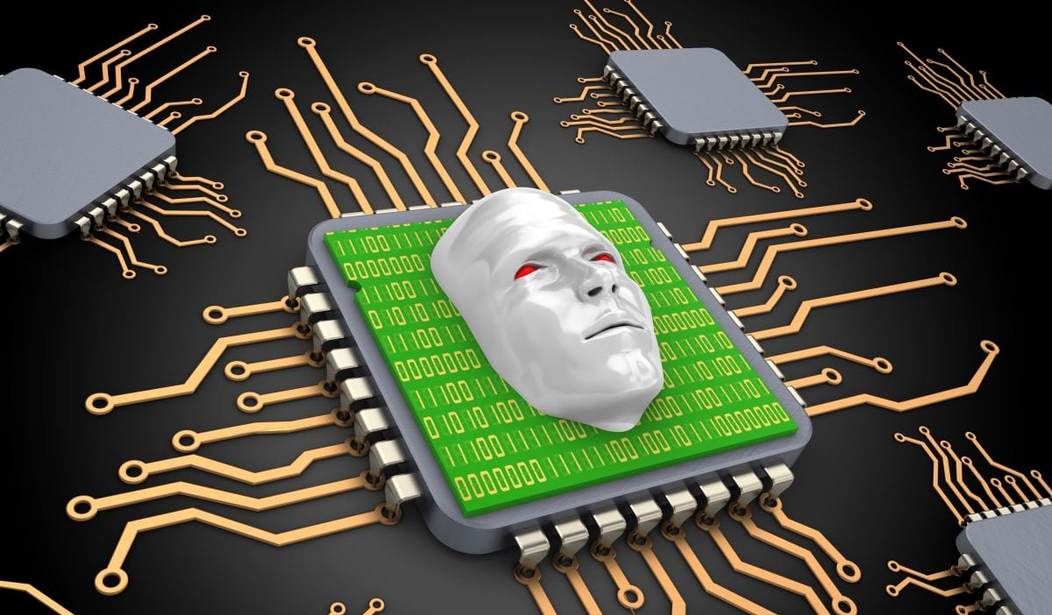Within the next 10 years, there’s a good chance that 50% of the jobs today will be gone.And no one in Washington is talking about what to do to deal with this likelihood.
The cause of this coming massive economic upheaval is artificial intelligence — a catch-all term that encompasses everything from driverless cars to sex robots. Its impact is already being felt on the factory floor, where smart machines are making American manufacturers more competitive, more efficient, and more profitable, but without the mass number of workers that used to be the backbone of the American economy.
Donald Trump says he can change all this, that he can bring these jobs back from overseas, or prevent illegal immigrants from taking them. And the president isn’t alone. The Democratic Party and the AFL-CIO still believe that a manufacturing Renaissance is possible.
But this is a fantasy. Those jobs didn’t go overseas. They’re forever gone as super-intelligent machines are making human beings superfluous.
Unnoticed by most is that this Renaissance is already well underway. The problem for Trump, the Democrats, and the unions is that the new plants are employing 90% fewer workers than they would have a generation ago. As manufacturing jobs disappear, manufacturing output is soaring. We are making more things in the U.S. than in any other country except China. And we’re doing it with a lot fewer workers.
A hugely significant meeting took place in Asilomar, California, in January at which the top experts in the field of artificial intelligence gathered to discuss ethical guidelines to prevent some super-intelligent machine from running amok and threatening civilization. This is a serious question that is being debated by dead serious people who know the potential of AI for good — and evil.
But the attendees were far more worried about the impact of AI on the workforce and what it means for the future of the economy.
In the US, the number of manufacturing jobs peaked in 1979 and has steadily decreased ever since. At the same time, manufacturing has steadily increased, with the US now producing more goods than any other country but China. Machines aren’t just taking the place of humans on the assembly line. They’re doing a better job. And all this before the coming wave of AI upends so many other sectors of the economy. “I am less concerned with Terminator scenarios,” MIT economist Andrew McAfee said on the first day at Asilomar. “If current trends continue, people are going to rise up well before the machines do.”
McAfee pointed to newly collected data that shows a sharp decline in middle class job creation since the 1980s. Now, most new jobs are either at the very low end of the pay scale or the very high end. He also argued that these trends are reversible, that improved education and a greater emphasis on entrepreneurship and research can help feed new engines of growth, that economies have overcome the rise of new technologies before. But after his talk, in the hallways at Asilomar, so many of the researchers warned him that the coming revolution in AI would eliminate far more jobs far more quickly than he expected.
Indeed, the rise of driverless cars and trucks is just a start. New AI techniques are poised to reinvent everything from manufacturing to healthcare to Wall Street. In other words, it’s not just blue-collar jobs that AI endangers. “Several of the rock stars in this field came up to me and said: ‘I think you’re low-balling this one. I think you are underestimating the rate of change,’” McAfee says.
That threat has many thinkers entertaining the idea of a universal basic income, a guaranteed living wage paid by the government to anyone left out of the workforce. But McAfee believes this would only make the problem worse, because it would eliminate the incentive for entrepreneurship and other activity that could create new jobs as the old ones fade away. Others question the psychological effects of the idea. “A universal basic income doesn’t give people dignity or protect them from boredom and vice,” Etzioni says.
Driverless trucks delivering goods to fully automated warehouses and loading docks. Drones delivering everything from pizza to furniture. Offices will become almost fully automated as work is farmed out to smart machines. There’s even speculation that AI could take the place of reporters and editors, writing copy with more speed and less bias than humans.
Most of these innovations are not far off. What’s worse, our schools are stuck in a time warp, teaching kids as if it was the 1970s, sending them to college where they major in English Lit or Environmental Management. How many of these young people would be better off going to a trade school and learning a valuable skill that would be useful in the new economy?
What’s needed is a revolution. Not rage against the machines, but a clear-eyed recognition in society from top to bottom that we can’t go back. The days when you could graduate from high school and go to work for 40 years in the local plant, earning a good middle-class wage and being able to buy into the American dream, are gone forever. Donald Trump can’t bring them back. The Democrats can’t bring them back. The unions can’t bring them back.
Government, the schools, and businesses large and small are all going to have to change the way they think about the economy in order for the U.S. to navigate through the dangerous shoals of a brave new world that we can barely imagine today. For better or for worse, the future belongs to the bold — and those who adapt most quickly to new conditions are likely to be the winners.










Join the conversation as a VIP Member